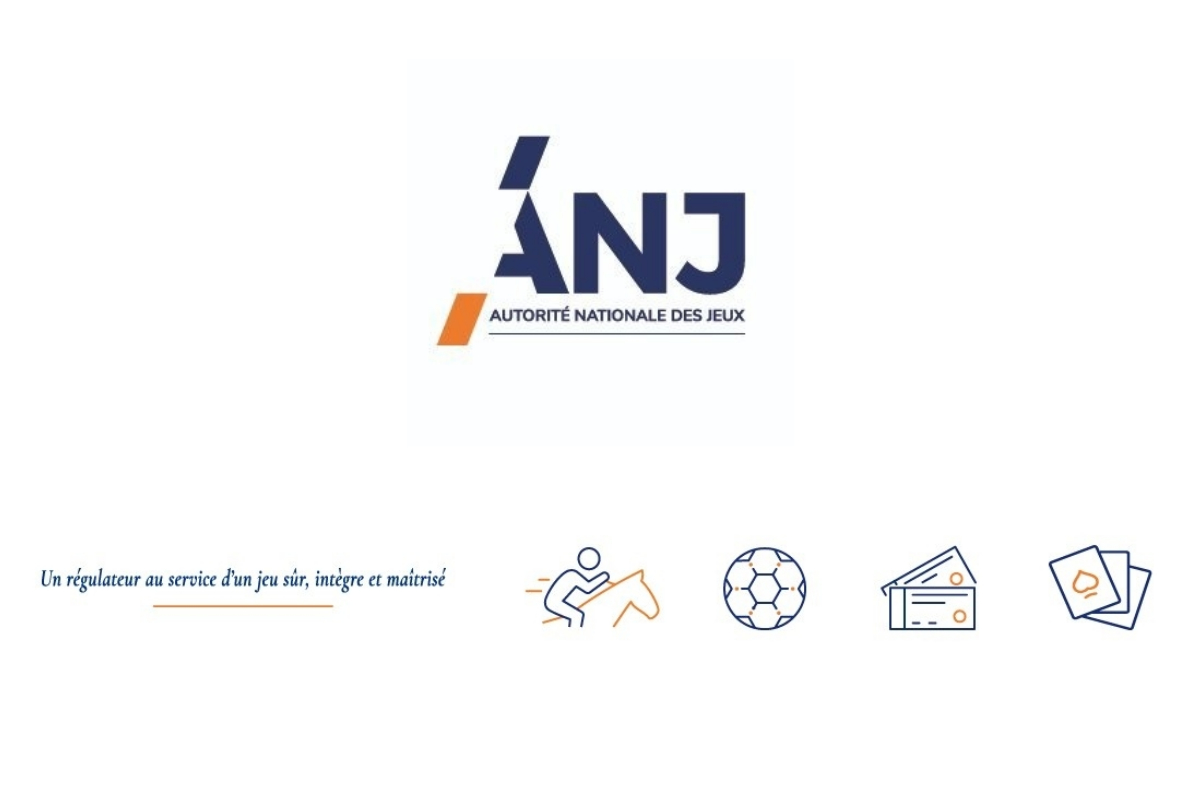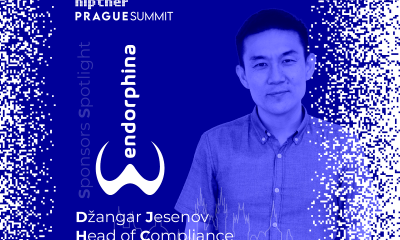Compliance Updates
The ANJ publishes its 2024/2026 strategic plan aimed at drastically reducing the proportion of excessive gamblers

Three years after its establishment and the introduction of the new gambling regulation, the ANJ is presenting its strategic plan for 2024-2026. The reduction of excessive gambling and the social damages it causes, as well as the protection of minors, are at the heart of its actions. To achieve this ambitious objective, which reflects a problem that is no longer individual but social, the ANJ is calling on all economic and institutional players concerned to work alongside it.
The first cycle of regulation under the aegis of the French Gambling Authority (ANJ) ended in 2023 with the observation that the gambling market was booming, with revenues of more than €13 billion, representing an increase of more than 50% since the opening of the market in 2011. Over the years, gambling has become a mainstream consumer product for people of all ages and from all walks of life: more than half of all French people now gamble, spending more than €55 billion each year. Gambling is at the heart of our societies, and this phenomenon can be observed in every European country.
However, gambling is not a product like any other, and it is the risks inherent in this activity that have justified the government’s implementation of a restrictive regulatory policy, which translates into a legal objective of limiting and supervising the supply and consumption of gambling. In 2019, the public authorities wanted to strengthen player protection and the ANJ was created with this objective in mind.
Although gambling operators have made significant progress in this area over the past three years, problem gambling still plays too large a role in the gambling market. In 2019, the Gambling Observatory estimated the number of at-risk gamblers at 1.4 million, including almost 400,000 at pathological level. In total, problem gambling accounts for more than 38% of the sector’s turnover and excessive gambling alone for 21%. These figures, which are due to be updated shortly, illustrate the reality of a social problem, particularly for young people, with collateral damage in the gambler’s in the gambler’s immediate environment: excessive debt, family problems, difficulties at school, etc.
In this context, the ANJ has been working with all stakeholders to define the new regulatory guidelines for the period 2024-2026. These place the protection of minors and the reduction of excessive gambling and the social damage it causes at the centre of the regulator’s activities, like a common thread that inspires all its actions.
The ANJ’s new roadmap is based on three fundamental pillars:
- The first of these pillars, which reflects the public health implications of regulation, aims to drastically reduce the proportion and number of excessive gamblers in the gambling market. This key objective for the ANJ will require major efforts on the part of operators. It cannot be achieved without a coherent and balanced regulatory policy aimed at consolidating the French gambling market model.
- At the same time, this requires the ANJ to continue its efforts to preserve the transparency and integrity of the sector, with the fight against illegal gambling at the forefront (second pillar), and to strengthen the economic dimension of regulation in order to gain a better understanding of market balances and provide solutions to the changes it is facing today (third pillar).
Finally, the strategic plan is based on three foundations that are the conditions for the success of its ambition: to make scientific knowledge of the market and gambling practices the compass of regulation; to embody, at national and European level, regulation based on dialogue and cooperation to drive the repositioning of the market; and finally, to position the ANJ as a laboratory for bold, effective and exemplary public action.
This is a critical time for the French gambling market: it can both destabilise and strengthen the French model. This strategic plan should help to strengthen the French regulatory model as an acceptable compromise between openness and protection.
Isabelle FALQUE-PIERROTIN, President of the ANJ, said: “After three years in office, we now believe that the regulation of gambling must take a turn that involves the market gradually moving towards a less intensive model. This voluntary target to reduce the number of excessive gamblers and to strengthen the protection of minors will be monitored over a period of 3 years and adjusted in line with monitoring indicators and prevalence studies. It can only be achieved if all the players join forces alongside the regulator to move the goalposts: gambling operators, public authorities, institutions, associations, etc. “
Compliance Updates
Spillemyndigheden: New Guidance on Responsible Gambling

The Danish Gambling Authority has published a new gudiance on responsible gambling, which is targeted licence holders who offer betting and online casino.
The guidance reviews the rules on responsible gambling and also contain interpretations on how, as a licence holder who offers betting and online casino, can meet the requirements to offer gambling in a responsible manner.
The DGA’s guidance on responsible Gambling for Betting and Online Casino
The post Spillemyndigheden: New Guidance on Responsible Gambling appeared first on Eastern European Gaming | Global iGaming & Tech Intelligence Hub.
Betting and Gaming Council
BGC: Government Tax Hike Boost for Black Market

The Betting and Gaming Council (BGC) has warned that the incoming British tax hikes will boost black market activity.
Based on a new polling by Anacta reported in February 2026, there are concerns that proposed UK government gambling strategies, particularly regarding increased taxes, could contradict their intended harm-reduction goals.
While ministers have launched a consultation to ban unlicensed operators from sponsoring football clubs, including in the Premier League, ordinary punters fear the Government’s new tax rises could drive millions straight into illegal gambling sites, the new poll reveals.
The poll, conducted found:
• 52% of people who bet believe higher taxes will make punters more likely to use unlicensed black market sites.
• 66% of those who bet say tax increases will make betting and gaming less enjoyable.
• 57% think UK gambling is already heavily regulated.
With around 22.5 million adults placing a bet each month, the Government’s disastrous tax hikes will drive millions more to the harmful black market.
Grainne Hurst, Chief Executive of the Betting and Gaming Council, said: “When you tax responsible, regulated betting and gaming companies harder, you do not reduce demand you simply drive customers towards the unsafe, unregulated black market.
“Illegal gambling sites do not pay tax. They do not contribute to British sport. They do not invest in safer gambling and they do not protect vulnerable people.
“If the Government wants growth and genuine consumer protection, it must back the regulated sector not make it less competitive against criminals.”
The regulated sector supports 109,000 jobs, contributes £6.8 billion to the economy and generates £4 billion in tax revenue, funding everything from the NHS to schools and local communities.
The post BGC: Government Tax Hike Boost for Black Market appeared first on Eastern European Gaming | Global iGaming & Tech Intelligence Hub.
Compliance Updates
Endorphina Compliance Strategies Explained ahead of HIPTHER Prague Summit

Ahead of the HIPTHER Prague Summit 2026, we speak with Džangar Jesenov, Head of Compliance at Endorphina, to explore how the company approaches regulatory excellence, market expansion, and certification in an increasingly complex global iGaming landscape – and how strong compliance frameworks support sustainable growth across Tier-1 European markets.
You have been leading Endorphina’s compliance function since 2021. How has the regulatory landscape in Europe evolved during this period, and what shifts have had the biggest operational impact on suppliers?
If I were to compare Endorphina in 2021 and Endorphina in 2026, I would describe them as two fundamentally different projects that nevertheless share the same core identity. The primary objective remains unchanged. However, the tools, scope, and operational framework used to achieve that objective have evolved significantly.
The development of the project reflects various external factors, including increasingly stringent regulatory requirements across multiple jurisdictions, technological advancements particularly within the financial sector and, importantly, substantial strengthening of human resources. Ultimately, people remain the most critical element in any successful project.
– From a regulatory perspective, I would particularly highlight the introduction and expansion of B2B licensing policies
Across jurisdictions on different continents, and the increased responsibility placed on game suppliers.
– Most notably, the heightened focus on player protection and security
In my view, enhanced player safety is one of the most important developments in the industry. Delivering engaging, high-quality games that are fully compliant with applicable legal frameworks is the foundation of any successful online platform and this is a commitment we uphold 24/7/365.
Endorphina has successfully expanded its presence across Tier-1 European markets. From a compliance perspective, what are the key pillars that enable smooth market entry and long-term sustainability?
In practice, there are unfortunately no “miracle tools” that would allow us to operate seamlessly at the highest regulatory level.
– I may not be saying anything new or particularly surprising here, but behind every jurisdiction we enter lies a substantial amount of work
Each market requires extensive hours of analysis, including a detailed review of regulatory obligations, comparison of local data requirements and reporting outputs, development of internal policies tailored to the specific regional framework, structured internal data sharing across project teams, and the implementation of oversight mechanisms to ensure compliance with newly introduced rules.
There is a significant amount of daily routine involved continuous processes, reporting, analysis, and, where necessary, re-implementation of procedures, including updates or revisions of internal regulatory frameworks.
Certification and regulatory alignment remain major challenges for many suppliers. How does Endorphina structure its internal processes to ensure efficiency while maintaining full regulatory integrity?
With the development of regulatory obligations, our practices in this area are also evolving. Compliance in the gambling business matures like fine wine. The more stable your team is, the stronger your position on the market becomes. Today, regulations are being introduced in many new jurisdictions where gambling was completely prohibited just a few years ago, and I see this as progress from a regulatory perspective.
– Our internal processes are continuously evolving toward the automation of data that does not require increased attention
Human resources are instead focused on information that is more relevant and requires deeper integrity.
With increasing focus on information security, responsible gaming, and technical standards, how do you see the role of compliance teams evolving within modern iGaming organisations?
As regulatory obligations continue to evolve, so does our practical experience in this area. Compliance in the gaming industry matures over time – much like fine wine.
– The more stable and experienced your team is, the stronger your position in the market becomes
Today, regulation is being introduced in many new jurisdictions where gambling was completely prohibited just a few years ago. I see this as a positive development and a clear indication of progress from a regulatory perspective.
Endorphina has built a reputation as a trusted slot provider with a strong global partner network. How should compliance, product development, and commercial teams collaborate today to support scalable growth?
As Head of Compliance, I believe scalable growth is only achievable when compliance, product development, and commercial teams operate in full alignment rather than in silos. Compliance must be involved from the earliest stages of market entry and product design to prevent delays, reduce regulatory risk, and support sustainable expansion.
– Product development should focus on modular, certification-ready solutions that allow efficient adaptation across multiple jurisdictions
Commercial strategy must remain closely aligned with regulatory feasibility, ensuring that opportunities are both attractive and compliant. Ultimately, stable and experienced teams are the key factor in building long-term, regulatorily resilient growth.
Looking ahead to the next 12–24 months, which regulatory or market developments should operators and suppliers be preparing for most carefully?
In this area, we are working very intensively. Looking ahead, I anticipate further increases in regulatory obligations, faster development of regulated markets, and structural changes in core online gaming products.”
– I expect deeper integration of games with the player environment, placing greater emphasis on individual profiling and personalization of each session
These evolving models will inevitably be reflected in regulatory frameworks, with a stronger focus on player protection and proper tax accountability. At the same time, regulators will increasingly compete to attract high-quality market participants, a category to which Endorphina clearly belongs.
In the near-term perspective, many of today’s processes will become standard industry practice, while additional requirements will emerge, particularly those linked to the accountability and oversight of key individuals within licensed entities.
Endorphina is the GamingTECH Awards Party & Ceremony Sponsor at HIPTHER Prague Summit 2026. What would you like operators, partners, and industry peers to take away from engaging with your team during the event?
Thank you for the opportunity to be among the first to welcome our friends. First and foremost, I would like to thank everyone who will be joining us in person in one of the most beautiful cities in the world, Prague.
I wish all participants a truly enjoyable experience.
– Make the most of every moment spent among inspiring people
Boost your personal endorphin levels and take the opportunity to get to know the Endorphina team more closely.
The post Endorphina Compliance Strategies Explained ahead of HIPTHER Prague Summit appeared first on Eastern European Gaming | Global iGaming & Tech Intelligence Hub.
-

 Baltics5 days ago
Baltics5 days agoHIPTHER Baltics Launches in Vilnius with Agenda Revealing Lithuania’s 2026 Regulatory Reset
-

 Andrew Cardno6 days ago
Andrew Cardno6 days agoQCI Launches its Data Community Platform in Australia
-

 AI-Powered Compliance and Player Support5 days ago
AI-Powered Compliance and Player Support5 days agoDigerCompanion — Digicode’s AI Solution for Compliance and Player Support in Regulated iGaming
-

 Latest News6 days ago
Latest News6 days agoSpinomenal Debuts Magical Genie — 3×3 Hold & Hit Adventure
-

 Amusnet5 days ago
Amusnet5 days agoAmusnet Enters into Strategic Partnership with Twinsbet Arena in Vilnius, Lithuania
-

 Free spins6 days ago
Free spins6 days agoOnlyPlay Releases Pub Fruits
-

 Brazil6 days ago
Brazil6 days agoOctoplay Enters Brazilian Market Through a Strategic Partnership with Superbet
-

 BIS SIGMA5 days ago
BIS SIGMA5 days agoBrazil between expansion and fiscal pressure































